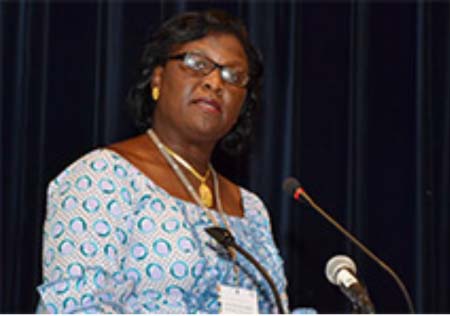
(Issue, Friday, 16 September 2016)
A
three-day high-level seminar on a cyber-security framework for financial
services is underway at the Paradise Suites Hotel in Kololi.
The
regional course organised by WAIFEM and hosted by the Central Bank of The
Gambia, seeks to expose participants to the threats posed by cyber-crime to
organisations and measures to mitigate these threats.
In
declaring the high-level seminar open on behalf of the Governor of Central Bank
of The Gambia, the second deputy governor, Oumie Savage Samba, said cyber
security is no longer a pure computer security issue, but also a national
policy matter because the illicit use of cyberspace could hamper not only the
success of an organisation, but also the economic, public health, safety and
national security activities of a country.
“Therefore
Chief Executive Officers and national leaders are accountable for cyber
security to forestall the consequences of cyber-attacks,” she said.
Cyber-attacks,
she noted, could result in loss of confidentiality, integrity and/or
availability of valuable information and electronic data, loss of access to the
organisation computing network, and lawsuits, loss of public trust,
prosecution, internal disciplinary action or termination of employment.
The
CBG deputy governor highlighted some of the cyber safety threats as viruses,
hackers, identity thieves, and spyware.
In
his remarks on behalf of the Director General of WAIFEM, Ousman Sowe, Director
of Financial Sector Management Department, said the institute commenced
training activities in April 1997.
It has since organised over 566 training and
capacity programmes in the form of national and regional courses/workshop for a
demand assessment, institution building and follow-up missions, senior policy
and inter-regional seminars.
He
said the institute has since inception enhanced the knowledge of over 15,390
middle/senior executive level officials, legislators and journalists
predominantly from WAIFEM constituent countries, and a sizeable number from
other sub-region in Africa and Latin America.
Mr
Sowe further said WAIFEM has also built collaboration arrangements with a
number of reputable institutions to ensure high standards in its programmes.
These
include the IMF, the World Bank, the African Development Bank (ADB), the United
Nations Institute for Training and Research (UNITAR), Commonwealth Secretariat,
African Capacity Building Foundation (ACBF), United Nations Economic Commission
for Africa (UNECA) and currency research.
“These
collaborative technical partners find in WAIFEM an effective and efficient
platform to reach many more West Africans, while the Institute in turn finds in
them a source of cutting edge knowledge, skills and support with which to
enrich our programmes.”
The
overall aim of the seminar, he pointed out, is to expose the participants to
the threats posed by cyber-crimes to organisations and measures to mitigate
these threats.
Accordingly,
he said, the broad themes to be covered include overview of cyber security
concepts and drivers in the financial services industry, the rapidly developing
scope and nature of the threats to cyber security, among others topics.


